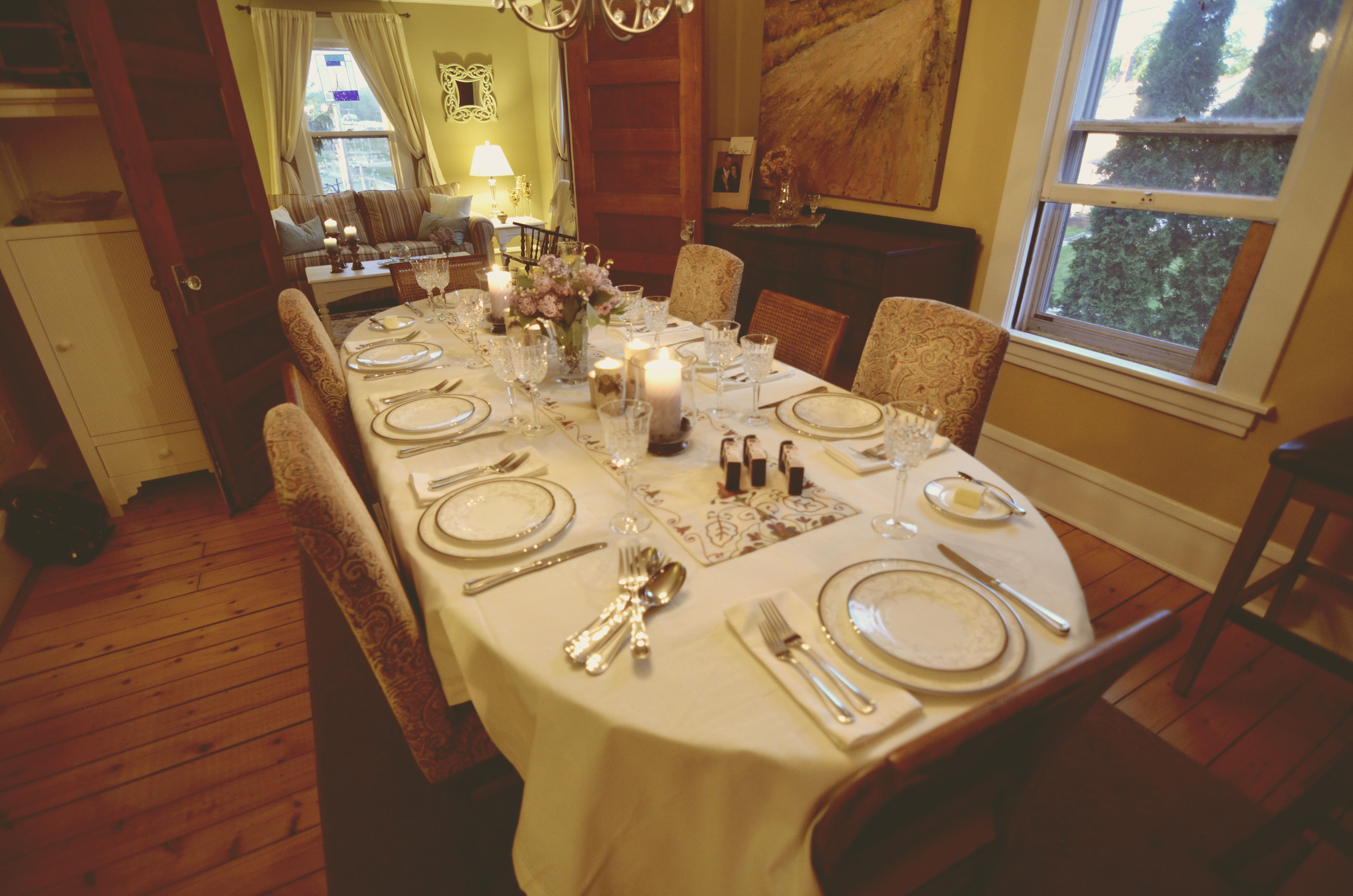
HOW TO BEHAVE
AT THE TABLE.
"I WISH my mother would never have company. A fellow can't get enough to eat when people are
staring at him."
As I was visiting Frank's mother at the time, I thought this remark was rather personal. I suppose I blushed. At any rate, Frank at once added, "Now, Aunt Marjorie, I did not mean you when I said that; I meant strangers—like ministers, and gentlemen from out West, and young ladies."
"Oh!" said I, "I am very glad to be an exception, and to be assured that I do not embarrass you. Really, Frank, it is an unfortunate thing to be so diffident that you cannot take a meal in comfort when guests are at the table. I suppose you do not enjoy going out to dine yourself?"
"No," he said; "I just hate it."
Perhaps one reason why boys and girls do not feel so comfortable and so at ease as they might on special occasions at the table, is because they do not take pains to be perfectly polite when there is no one present but the ordinary home-folks. In the first place, we owe it to ourselves always to look very neat and nice at our own tables. No-body should presume to sit down to a meal without making a proper toilet beforehand. Boys ought to be careful that their hair is brushed, their hands and face clean, their nails free from stain and soil, and their collar and tie in order before they approach the table. A very few moments spent in this preparation will freshen them up, and give them the outward appearance of little gentlemen.
I hope girls do not need to be cautioned thus.
Then there are some things, which good manners render necessary, but about which every one is not informed. Of course you know that you are not to eat with your knife. Fifty years ago people frequently ate with their knives, and it is quite possible that now and then you may see some old-fashioned person doing so; but it is not customary now, nor is it safe or convenient. When you send your plate for a second helping, or when it is about to be removed, you should leave your knife and fork side by side upon it.
It is not polite to help yourself too generously to butter. When individual salt dishes are not furnished, salt should be placed on the edge of the plate, never on the tablecloth. Do not drink with a spoon in the cup, and never drain the very last drop. Bread should be buttered on the plate and cut a bit at a time, and eaten in that way. Eating should go on quietly, and not hastily. Nothing is more unpleasant than to see one make a noise with the mouth while eating, and swallow food with noticeable gulps.
Do not think about yourself, and fancy that you are the object of attention to your neighbors.
Poor Frank's unhappy state of mind was caused by his thinking too much about himself, as well as by a little uncertainty as to what were precisely the right things to be done.
—Harper's Young People